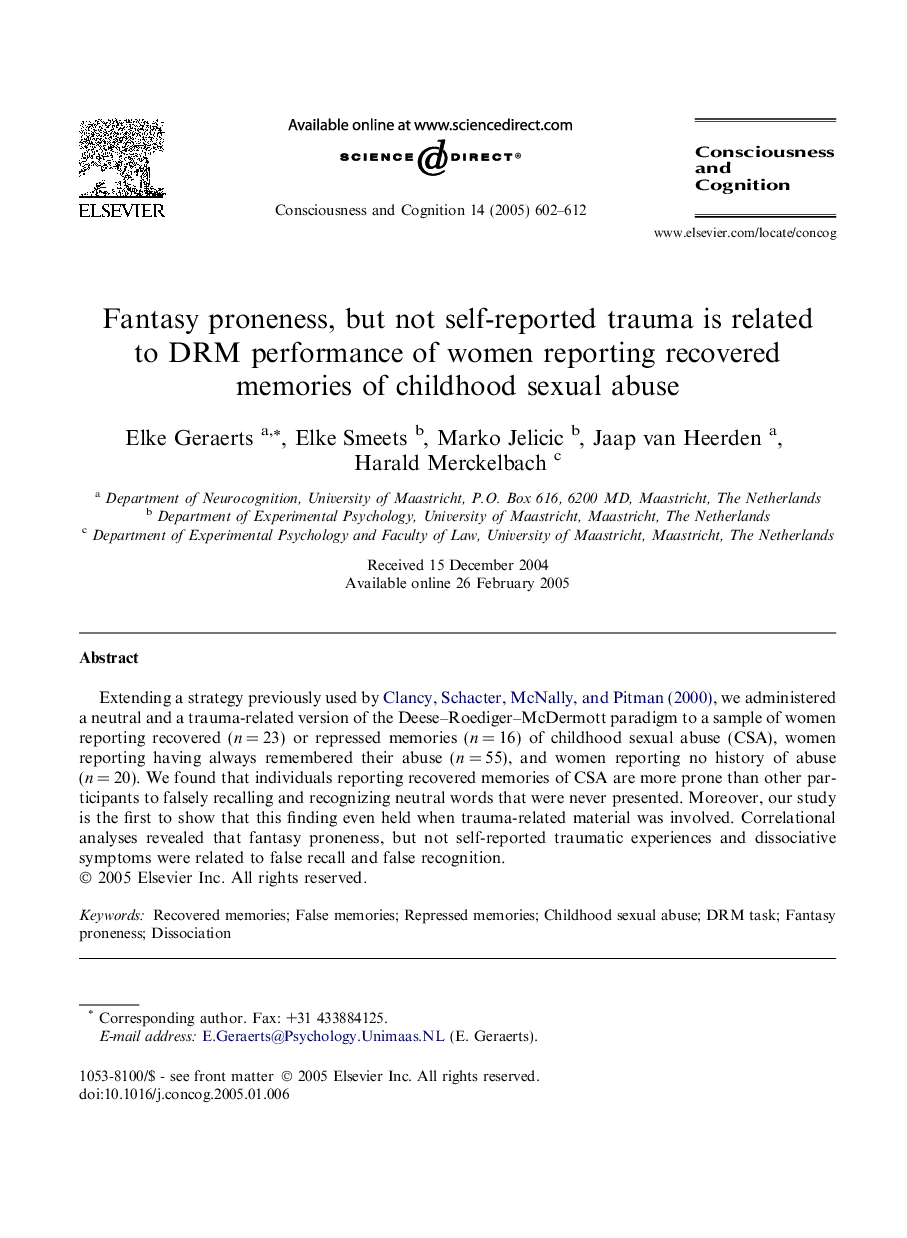| Article ID | Journal | Published Year | Pages | File Type |
|---|---|---|---|---|
| 10458871 | Consciousness and Cognition | 2005 | 11 Pages |
Abstract
Extending a strategy previously used by Clancy, Schacter, McNally, and Pitman (2000), we administered a neutral and a trauma-related version of the Deese-Roediger-McDermott paradigm to a sample of women reporting recovered (n = 23) or repressed memories (n = 16) of childhood sexual abuse (CSA), women reporting having always remembered their abuse (n = 55), and women reporting no history of abuse (n = 20). We found that individuals reporting recovered memories of CSA are more prone than other participants to falsely recalling and recognizing neutral words that were never presented. Moreover, our study is the first to show that this finding even held when trauma-related material was involved. Correlational analyses revealed that fantasy proneness, but not self-reported traumatic experiences and dissociative symptoms were related to false recall and false recognition.
Related Topics
Life Sciences
Neuroscience
Cognitive Neuroscience
Authors
Elke Geraerts, Elke Smeets, Marko Jelicic, Jaap van Heerden, Harald Merckelbach,
